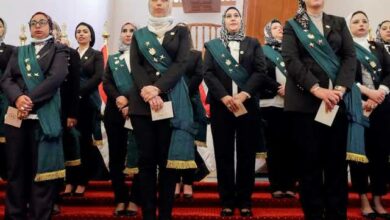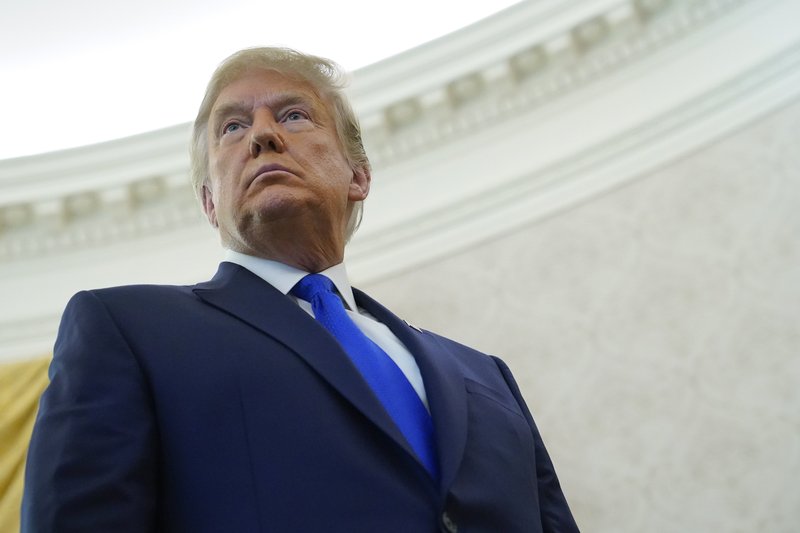The recent imprisonment of two lawyers convicted of assault has given rise to a conflict between Egypt’s two poles of justice: lawyers and judges. Both sides started pointing fingers at each other after verdict, but the conflict apparently runs deeper than recent events would suggest.
The dispute broke out a couple of weeks ago when two lawyers were given five-year prison sentences for assaulting the district attorney in the Nile Delta city of Tanta, northwest of Cairo. The lawyers are said to have slapped the prosecutor in reaction to a provocation, although accounts remain conflicted over who actually initiated the scuffle. After going to court, a judge ruled in favor of the prosecutor, a decision which defense lawyers claim was biased.
“What happened made the lawyers feel demoralized and this is a very dangerous situation,” said Mohamad Abdel-Ghafar, a board member at the Lawyers Syndicate. “If the conflict intensifies, it’s likely that 400,000 lawyers will revolt in the streets.”
Abdel-Ghafar was one of almost 10,000 lawyers who filed complaints with Egypt’s attorney general on 13 June accusing Egyptian Judges Club members, led by chairman Ahmed el-Zend, of humiliating the lawyers.
On the other side, around 800 judges filed complaints against Hamdi Khalifa, head of the Lawyers Syndicate, and Montasir el-Zayat, head of the Islamist lawyers, accusing them of inciting riots inside courtrooms.
The verdict was delivered on 9 June, just three days after the alleged assault. Lawyers were soon up in arms over the speed with which the verdict was issued. At the hearing, around a hundred lawyers had requested a postponement in order to revise the case files and to prepare for a fair trial. The judge refused their request.
“What took place in the courtroom has never happened before… the defendants had requested their legitimate right to postpone the case in order to revise the evidence, a normal request that is usually accepted by the court.” said Abdel-Ghafar.
Courts in Egypt usually delay cases involving powerless citizens or opposition figures. Ayman Nour, head of the Ghad opposition party, had submitted tens of reports about harassment he received from security officers. During his imprisonment from 2005 until 2009 Nour, who is also a lawyer, faced many assaults that were never dealt with, despite his official requests before Egypt’s prosecutor general. More recently, the leftist opposition Tagammu party filed suits against Egyptian MPs, accusing them of suggesting that riot police should shoot protesters. Egyptian courts never took action.
However, in the present circumstances, the courts did not linger, leaving a bitter taste in the mouths of many lawyers who are familiar with Egypt’s legal system.
Instead of pronouncing the verdict out loud in the courtroom, the judge wrote his decision on a piece of paper, which many lawyers say is an unusual procedure. Afterward, a mass of lawyers attacked the Tanta district attorney’s office in reaction to the conviction of their colleagues.
“The conflict is still going on despite attempts by Parliament Speaker Fathi Srour to resolve the problem,” el-Zayat, told Al-Masry Al-Youm over the phone.
Lawyers who had fought internally over the past few weeks to bring down their syndicate chief, have united over the current conflict.
“Now Khalifa cannot but express the majority opinion of the lawyers,” said el-Zayat, who agrees with the Syndicate head’s position on this issue despite being among a group of lawyers that pushed for Khalifa’s removal just three weeks ago.
The judges, like the lawyers, are united in their stance, so much that even reformist judges are backing el-Zend, a ruling National Democratic Party affiliate.
“We back el-Zend, even if we disagree with him administratively,” said Hesham Korraa, president of the Panel and State Security Court and the vice president of the Judges Club. He has served as a judge for 26 years.
“It is a natural legal procedure for a case to be completed before court within four days,“ added Korraa, who identifies himself as belonging to the final remnants of a reformist current that called for judicial independence in 2006. That quest was defeated by the state, which directs the judges through the Minister of Justice.
“The lawyers checked the papers in the courtroom and they continued their defense afterward,” Korraa explained, pointing out that lawyers were present during the interrogations. “The safety of judges in their workplace contributes to their ability to issue fair decisions; the Ministry of Interior is not doing a good job if there is no response when attorneys’ offices are attacked.”
Legal experts see a mutual trespassing by both parties. “It’s unacceptable for someone from the judiciary to be assaulted,” said Nasser Amin, director of the Arab Center for the Independence of the Judiciary and the Legal Profession (ACIJLP). “At the same time, it was very insulting to quickly deal out such a heavy sentence for the lawyers without a fair chance of defense; this was against the rules of fair judgment according to the UN, where lawyers should be given a fair chance to be ready for their defense.”
Amin believes that both sides have shown a lack of integrity. “Interrogations should have been conducted by judges, not by the attorneys since they are part of the conflict… but it was illegal for lawyers to vandalize the Tanta district attorney’s office in reaction to the conviction of their colleagues.” Amin pointed out that lawyers’ strikes and appeals are legitimate forms of expressing dissent.
The problem is in part related to the increasing tensions between judges and lawyers over the past decade. Educational standards, internal conflicts and recruitment to the judiciary has widened the gap between the two groups. Lawyers, prosecutors and judges get their education from the same law schools, whether secular or religious, but other factors separate them.
“Recruitment for judge and prosecutor positions don’t only depend on having a law degree, but rather on State Security reports, social background and family connections,” said Nabil Abdel Fattah, a legal expert from Al-Ahram Center for Strategic Studies, a state-owned think-tank.
The Lawyers’ Syndicate has also shifted from providing adequate professional training into a place for power struggles between regime-affiliated members and reformists. “The syndicate should study how to treat the lawyer-lawyer tensions and even lawyer-client conflicts,” said the researcher.
The court will give its final say over the appeal on Sunday.




